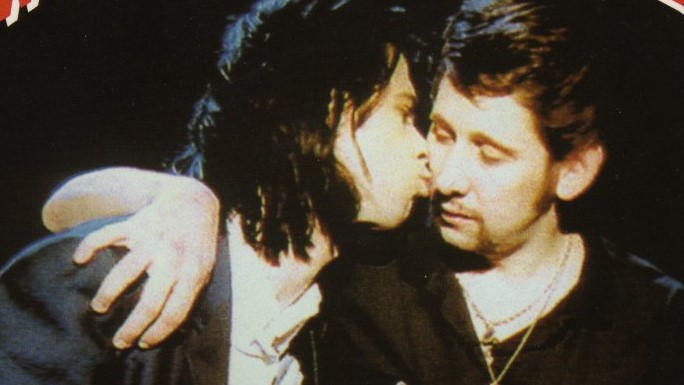Nick Cave is mad as hell, and he’s not going to take it anymore. The Australian force of nature let his feelings be known about BBC radio spinning the censored version of the annual UK Christmas favorite, The Pogues’ “Fairytales of New York.”
The wildly popular holiday tune has long been sullied for many listeners by an unfortunate choice of words in the lyrics:
You’re a bum
You’re a punk
You’re an old slut on junk
Lying there almost dead on a drip in that bed
You scumbag, you maggot
You cheap lousy f*gg*t
Happy Christmas your arse
I pray God it’s our last
It’s the use of the homophobic slur that’s the point of contention; as such, the BBC has announced that the network will again be playing only the censored version over the airwaves: “We know the song is considered a Christmas classic and we will continue to play it this year, with our radio stations choosing the version of the song most relevant for their audience,” the BBC shared in a statement. Utilizing his Red Right Hand Files newsletter platform, Cave lashed out at the BBC’s decision in an impassioned missive.
“One of the many reasons this song is so loved is that, beyond almost any other song I can think of, it speaks with such profound compassion to the marginalized and the dispossessed,” Cave shared. “With one of the greatest opening lines ever written, the lyrics and the vocal performance emanate from deep inside the lived experience itself, existing within the very bones of the song. It never looks down on its protagonists. It is a magnificent gift to the outcast, the unlucky and the brokenhearted. We empathize with the plight of the two fractious characters, who live their lonely, desperate lives against all that Christmas promises—home and hearth, cheer, bounty and goodwill. It is as real a piece of lyric writing as I have ever heard, and I have always felt it a great privilege to be close friends with its creator, Shane MacGowan.”
As for the offensive lyrics within the tune, Cave is pragmatic, stating, “The idea that a word, or a line, in a song can simply be changed for another and not do it significant damage is a notion that can only be upheld by those that know nothing about the fragile nature of songwriting. The changing of the word ‘f*gg*t’ for the nonsense word ‘haggard’ destroys the song by deflating it right at its essential and most reckless moment, stripping it of its value. It becomes a song that has been tampered with, compromised, tamed, and neutered and can no longer be called a great song. It is a song that has lost its truth, its honour and integrity—a song that has knelt down and allowed the BBC to do its grim and sticky business.”
Still, Cave does consent that if enough people are indeed offended by the song, the BBC should simply leave it alone. “I am in no position to comment on how offensive the word ‘f*gg*t’ is to some people, particularly to the young,” he admitted. “It may be deeply offensive, I don’t know, in which case Radio 1 should have made the decision to simply ban the song, and allow it to retain its outlaw spirit and its dignity.”
Expressing a sense of empathy for the song itself, Cave ended his message with a subtle swipe at sweeping political correctness. “The BBC, that gatekeeper of our brittle sensibilities, forever acting in our best interests, continue to mutilate an artifact of immense cultural value and in doing so takes something from us this Christmas, impossible to measure or replace,” the singer wrote. “On and on it goes, and we are all the less for it.”









